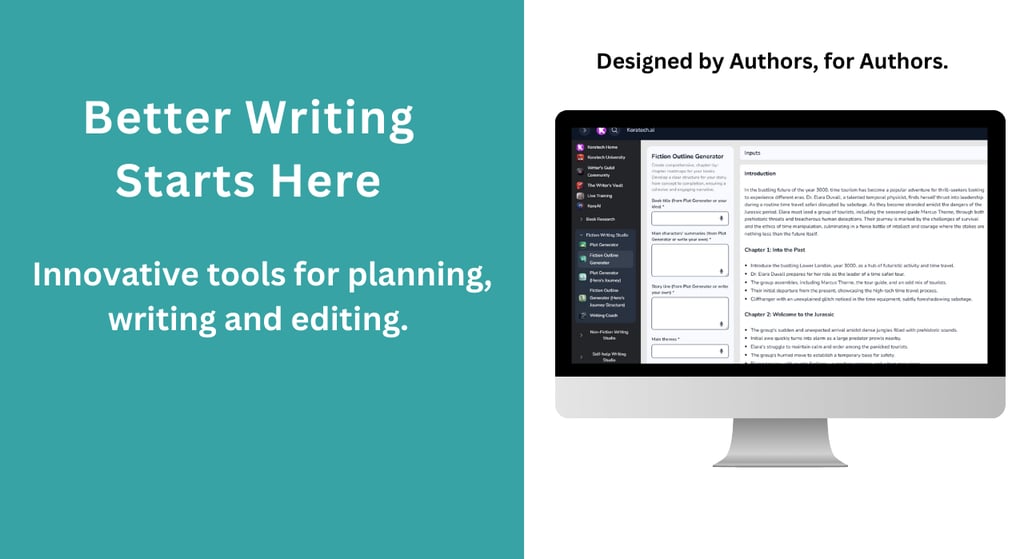Writer Burnout: 19 Powerful Tips for Recovery and Prevention
Burnout doesn’t mean you’ve lost your creativity — it means you need to heal. Discover 19 powerful ways to recover, reconnect with your purpose, and protect your passion for writing.
WRITING & EDITING


Writer Burnout: 19 Powerful Tips for Recovery and Prevention
Are you finding it hard to write — not because you don’t know what comes next, but because you just can’t bring yourself to care anymore?
That’s not writer’s block. That’s burnout.
Burnout is the mental and emotional exhaustion that comes when the pressure to keep creating outweighs your capacity to keep going. It’s especially common among writers, where the work is solitary, mentally intense, and often self-driven.
In this guide, we’ll help you:
Identify the signs of writer burnout
Understand the difference between burnout and writer’s block
Recover with proven strategies
Prevent burnout before it begins
If you're feeling overwhelmed, unmotivated, or disconnected from your writing — this post is for you.
What Is Writer Burnout?
Burnout is a state of chronic stress that leads to emotional, physical, and creative exhaustion. It can stem from:
Over commitment or unrealistic deadlines
Lack of rest or poor sleep
A mismatch between your values and your current projects
Isolation or lack of support
A sense of failure or stagnation
For writers, burnout doesn’t just mean tired — it means emotionally done. You stop enjoying writing. You dread the blank page. You question your ability or your purpose.
It’s more than a slump. It’s depletion.
Burnout vs. Writer’s Block
While they sometimes overlap, burnout and writer’s block are not the same.
Writer’s block means you want to write but can’t figure out what comes next.
Burnout means you don’t even want to try.
Block is temporary. Burnout requires recovery.
If your creativity feels distant, your emotions feel flat, and your body feels heavy — you’re likely in burnout, not just blocked.
Common Signs of Writer Burnout
Physical signs:
Constant fatigue, even after rest
Headaches or unexplained aches
Frequent illness or lowered immunity
Emotional signs:
Loss of motivation
Detachment from your story or goals
Mood swings, irritability, or depression
Feeling like nothing you write matters
Behavioral signs:
Procrastination or self-sabotage
Avoiding writing completely
Escapist habits like over-snacking, binge-watching, or excessive scrolling
Isolating from others
🛠 How to Recover from Writer Burnout
Recovery isn’t instant — but it is possible. Here are 10 strategies to help you heal and reclaim your creative energy.
1. Take a Break
Step away from writing completely for a few days or weeks. Give your brain a reset. Let go of guilt — this is part of the process.
2. Fix Your Sleep
Aim for 7–9 hours a night. Without rest, your brain can’t repair or restore itself — and creative burnout becomes inevitable.
3. Do Something Creative (That’s Not Writing)
Try painting, sketching, gardening, or music. Let yourself play without pressure.
4. Switch Projects Temporarily
Write a poem, a journal entry, or flash fiction. The Prompt Generator inside Koratech WriterPro is perfect for sparking low-stakes writing that reignites curiosity.
5. Consume Inspirational Stories
Read books or watch interviews from authors who’ve overcome burnout. Let their resilience remind you of your own.
6. Simplify Your Life
Say no. Drop unnecessary commitments. Use systems that reduce friction. The Goal Setting Studio inside WriterPro can help you track just one goal at a time.
7. Try Freewriting
Set a timer. Don’t overthink. Just write whatever comes. This bypasses your inner critic and reconnects you to flow.
8. Reconnect with Supportive People
Talk to friends or fellow writers who lift you up. Avoid people who drain or critique when you’re already low.
9. Rediscover Your “Why”
Why did you start writing? What does it mean to you now? Reground yourself in purpose.
10. Change Your Environment
Try a new writing space: a park, a café, or even a different room. New surroundings can change your mindset.
🚧 How to Prevent Burnout Before It Starts
Recovery is important — but prevention is even better. These long-term strategies can keep you writing with joy and sustainability.
1. Establish a Writing Routine
Consistency builds momentum. Whether you write daily or just on weekends, regular rhythm reduces mental resistance.
2. Move Your Body & Fuel Your Brain
Exercise and nutrition affect mental clarity and creativity. A strong body supports a strong mind.
3. Practice Mindfulness
Even 5 minutes of meditation or deep breathing can reduce stress and improve focus.
4. Declutter Your Workspace
A clean desk supports a calm mind. But don’t let cleaning become procrastination in disguise.
5. Focus on One Thing at a Time
Over commitment is the fastest path to burnout. Use the WriterPro Planner to prioritize only what matters most.
6. Set Boundaries
Learn to say no — even to good things. Protect your energy like a resource.
7. Take Breaks
Use the Pomodoro method, take days off, or build in creative rest weeks between projects.
8. Experiment & Keep Learning
Try new genres, tools, or formats. Let yourself evolve. WriterPro’s genre-specific tools help you stay inspired and in flow.
9. Reward Yourself
Finish a chapter? Celebrate. Even small wins deserve recognition. Motivation is fueled by momentum and meaning.
You Can Recover. You Can Thrive.
Burnout doesn’t mean you’ve failed. It means you’ve been pushing too hard for too long without the support, rest, or systems you need. That can change.
Use these tips. Talk to others. Reflect on your purpose. And when you’re ready, start again slowly, gently, purposefully.
You’re still a writer. And your words still matter.
Want Help Rebuilding Your Writing Rhythm?
Inside Koratech WriterPro, you’ll find tools designed to reduce decision fatigue and creative burnout including:
Daily Prompt Generator for low-pressure writing
Writing Spark Generator to keep your creativity flowing
Start your recovery with tools that support your process — not stress it.


